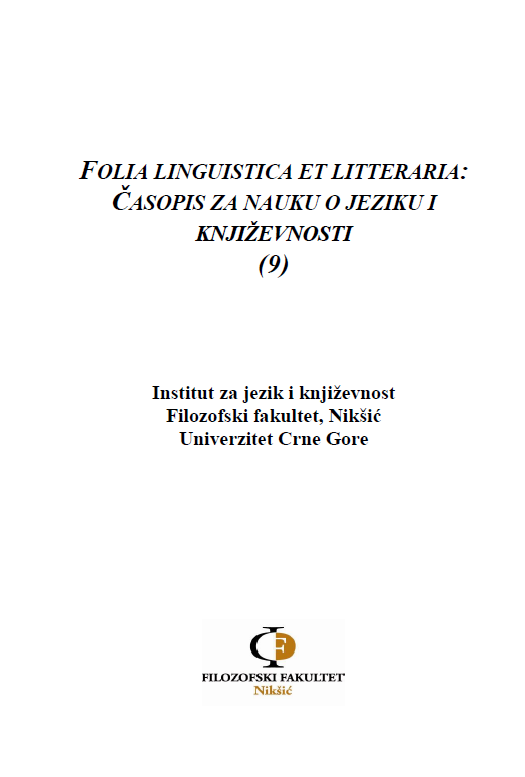FALSE FACE MUST HIDE WHAT THE FALSE HEART DOTH KNOW: READING A STREETCAR NAMED DESIRE THROUGH R.D. LAING’S CONCEPT OF ONTOLOGICAL INSECURITY
FALSE FACE MUST HIDE WHAT THE FALSE HEART DOTH KNOW: READING A STREETCAR NAMED DESIRE THROUGH R.D. LAING’S CONCEPT OF ONTOLOGICAL INSECURITY
Author(s): Ivana PeharSubject(s): Ontology, American Literature
Published by: Filološki fakultet, Nikšić
Keywords: Tennessee Williams; A Streetcar Named Desire; R. D. Laing; ontological insecurity;
Summary/Abstract: Ontological insecurity, as defined by Ronald David Laing, forms the basis of this paper. The aim is to research the impact of society on formation of opinion in regard to class, gender roles, and sexuality. Special attention, in search for the roots of ontological insecurity, is given to childhood years of the main characters in Tennessee Williams’ A Streetcar Named Desire. The aim is to show that both Stanley and Blanche exhibit the symptoms of ontological insecurity. However, Stanley succeeds to adjust to the norms of society and is represented as sane. Namely, Stanley adopts entirely the kind of personality offered to him by cultural patterns of the patriarchal society, and becomes the person he should, in the eyes of society, be. Blanche, on the other hand, fails to adjust. She challenges those patterns, and as a consequence, becomes represented as a schizoid person.
Journal: Folia Linguistica et Litteraria
- Issue Year: 2014
- Issue No: 9
- Page Range: 95-107
- Page Count: 13
- Language: English

